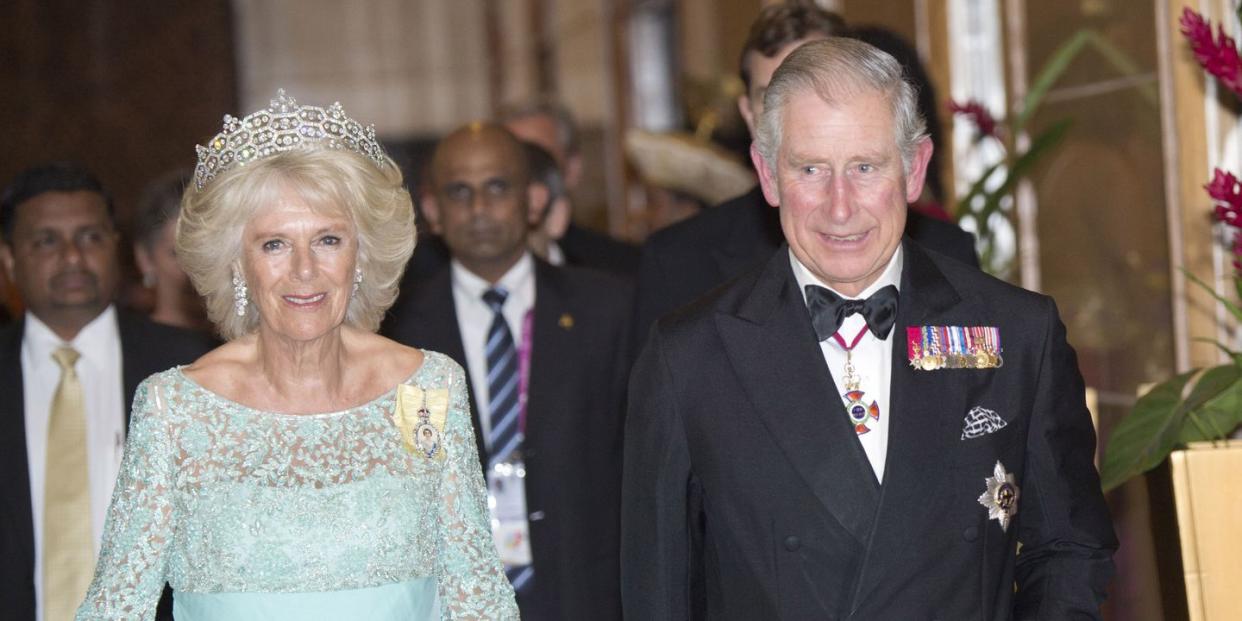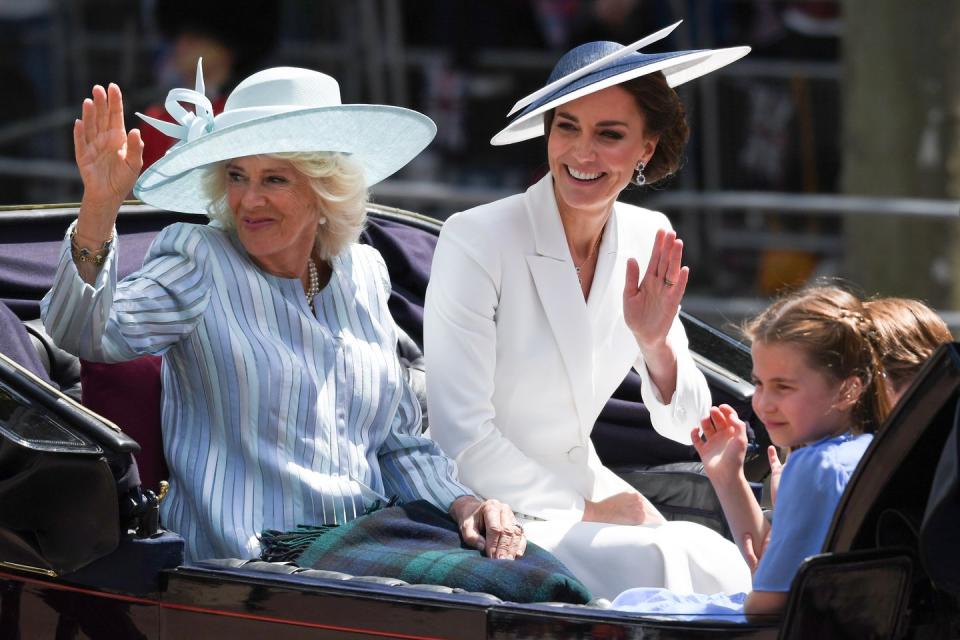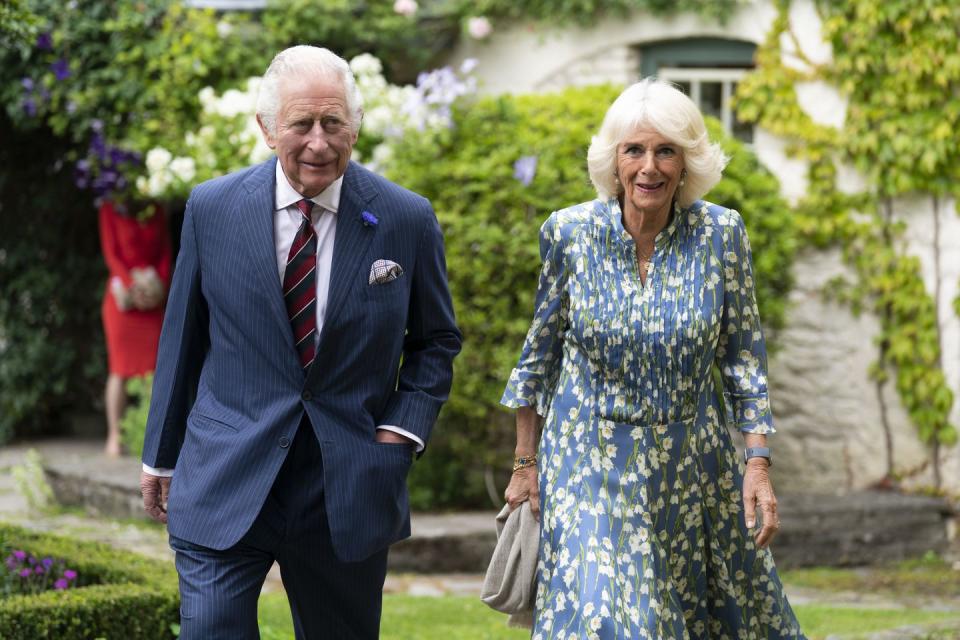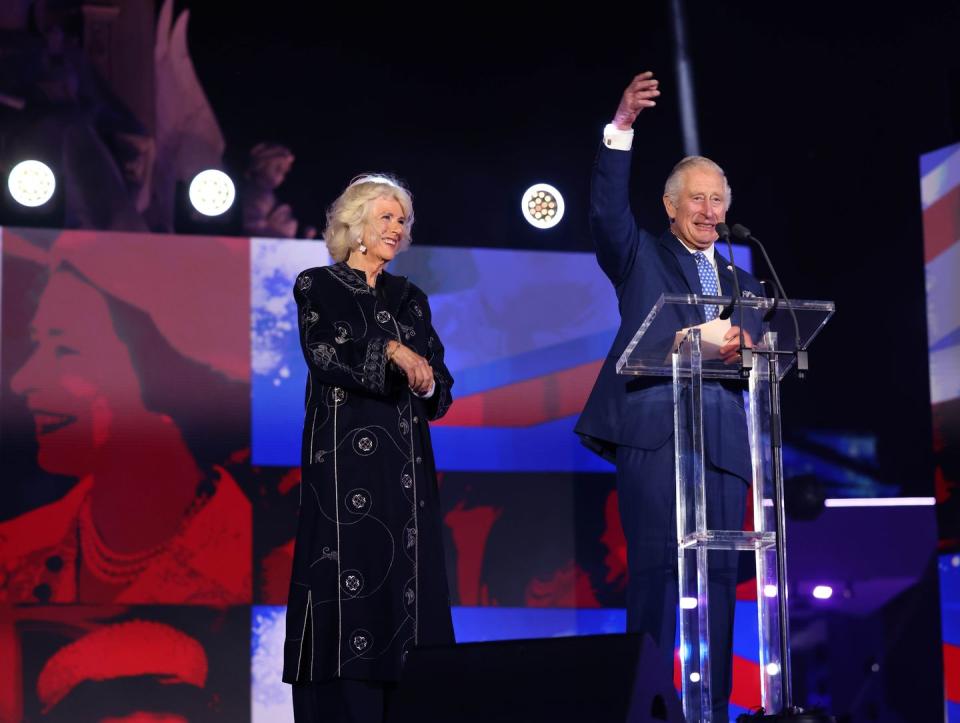At 75 Camilla is Finally a Future Queen, Whatever the Polls Say

When Queen Elizabeth reached 70 years on the throne on February 6, 2022, it was never going to pass without fanfare. But few predicted just how big a news event that particular day would become—and the fact that it would be a future queen consort who ended up in the spotlight.
It is now more than five months since Queen Elizabeth paved the way for Camilla to one day be called queen by describing it as her “sincere wish” in her Platinum Jubilee message. What is notable about that moment is not just the fact that it happened after years of the Palace saying she would be known as Princess Consort when Charles becomes king, but also the reaction to it and what that has meant since. While polling has shown that public opinion in the UK remains very much divided on the subject of Camilla being called queen, the lack of backlash once it was on the table proved that the Palace correctly gauged the right time—and the right way—to cement the change.

Now, as Camilla turns 75 years old on Sunday, she finds herself, for the first time, being publicly viewed and described as future queen. While many engagements of the past few months have been business as usual for her and Prince Charles, there is now an undeniable difference in the air. The question mark over Camilla’s head has gone. She will never use the title Princess of Wales (even though she currently is legally the Princess of Wales). But the changing of the guard will see her shake off the need to continue with a lesser title. It was plainly obvious that this was something Prince Charles very much wanted for his darling wife. It also means that the history books will not mark out his reign as being defined by what came before.
“The mechanism behind the announcement was very clever— it came directly from the Queen, left no room for doubt,” said Joe Little, Managing Editor of Majesty Magazine. “Had that statement not been made, it would have been a dreadful muddle at the change of reign because it would have all come back. But the fact that it’s all been tidied up now makes a huge difference.”

Indeed, the announcement was a culmination of years of Camilla being gradually accepted and finally embraced by “The Firm,” with the Palace keeping a close eye on public opinion along the way. In contrast to the Queen’s Golden Jubilee year in 2002 when then Camilla Parker Bowles’s appearance in the royal box behind Prince Charles was much remarked upon, by the time the Platinum Jubilee came around 20 years later she was on stage with ease alongside him as a duchess and future queen. The past few months have also seen her make her first appearance as a royal lady of the Order of the Garter in June and stand alongside her husband as he represented the Queen at the State Opening of Parliament in May for the first time. “This year we keep seeing glimpses of the future in all manner of ways,” Joe Little observes. “I do get the impression that Camila is being taken more seriously.”

It has largely been a gradual upward trajectory for the Duchess of Cornwall’s popularity since she married into the royal family in April 2005. There was absolutely a concerted effort by royal aides to rehabilitate her image, but she also managed that herself by the way she got on with the job and was friendly to everyone she met publicly—including journalists despite the intense criticism she had previously received from many publications. Her friend Sarah Troughton recently described to ITV a “wind of change in the duchess’ popularity."
However, Camilla’s favorability has in no way reached close to that of the most popular royals; the Queen, William and Kate. YouGov’s favorability tracker in May 2022 found that 47% have a positive view of her but 38% have a negative view. There also continue to be challenges—such as in November 2020 when Netflix’s The Crown’s fictional portrayal of Diana’s unhappiness in the royal fold influenced people’s views and also prompted many to revisit the real story. So much criticism was directed at Charles and Camilla around that time that Clarence House had to turn off the comments on their social media. “I don’t think they have moved on to be completely honest,” Newsweek’s Chief Royal Correspondent Jack Royston recently told British breakfast television program Good Morning Britain. “People in the 90s took Diana’s side in that particular dispute and actually the younger generations growing up now feel just as strongly, I think, as people did back then. They love Diana.”
“There will always be a minority of people who don’t like Camilla, and we may get a glimpse of that next month because of Diana’s anniversary [of her death on August 31],” Joe Little said. Indeed, when the world remembered Diana on the 20th anniversary of her death in 2017, polls showed that just 14% thought that Camilla should be called queen. And despite the Queen’s February announcement being seen as sealing the deal, the question of Camilla’s title continues to be polled by YouGov. Intriguingly, their data shows that, as of April 2022, 20% thought she should be called queen with almost twice as many—39%—believing she should have the previously announced title Princess Consort.
But Britain does not elect the titles of its royals any more than it elects the royals themselves. If the public is vehemently opposed to something, it may become clear through protest, reflected in the mainstream media or even the increasing influence of social media. However, it was precisely the absence of such fallout from the Queen expressing her “sincere wish” in February that enabled Camilla’s future title to become cemented. Ultimately it was the public’s lack of strength of feeling over the subject that has truly paved the way for Camilla to be queen, whatever the polls show people feel when asked. Based on recent survey results alone, the narrative that Camilla is now beloved by the British public may be a bit of a stretch. But it is undeniably true that she has finally been accepted as future queen. And for a someone who was once described as “the most hated woman in Britain," that in itself is a pretty good result.
You Might Also Like

